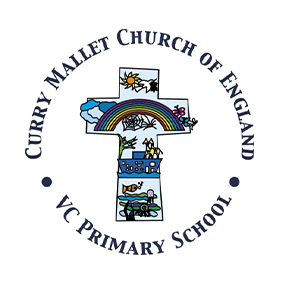MFL
Curriculum Overview
Our curriculum approach to art reflects our vision and values statement:
‘We live life in all its fullness’
Intent
All children at Curry Mallet School will experience another foreign language. We teach French. To provide an opportunity to engage with each other and learn a language that can be used to communicate with other people. To foster an interest and curiosity in other countries, cultures and languages. To ensure all children have an understanding of other cultures, beliefs and ways of like.
Implementation
In KS2, French is taught discretely by the class teacher or HLTA. We use the Kapow scheme of work to teach French. We also try to integrate French throughout the day e.g. using classroom instructions/ commands, as appropriate. As our curriculum is designed on a 2/3 year rolling program, dependent on class structure, in some years our Year 2 pupils also learn French.
Impact
Children enjoy French and most children are able to communicate in a simple way confidently by the end of KS2. Children relish telling others about their visits to other countries and their success in communicating with people whose first language is not English.
Planning
The school website has links to our yearly overview planning which shows the MFL coverage for each class throughout each term. We are collaborating with our CLP and secondary school to ensure we teach key skills that will support pupils on their journey into secondary school with a love of learning a MFL and a desire to continue learning another language. This helps us to plan and to ensure our planning increases the depth of understanding and range of knowledge throughout the primary years.
Knowledge and skills progression through the school
French is taught through listening, speaking reading and writing.
KS2 will learn to:
- Listen attentively to spoken language and show understanding by joining in and responding.
- Explore the patterns and sounds of language through songs and rhymes and link the spelling, sound and meaning of words.
- Engage in conversations; ask and answer questions; express opinions and respond to those of others; seek clarification and help.
- Speak in sentences, using familiar vocabulary, phrases and basic language structures.
- Develop accurate pronunciation and intonation so that others understand when they are reading aloud or using familiar words and phrases.
- Present ideas and information orally to a range of audiences.
- Read carefully and show understanding of words, phrases and simple writing.
- Appreciate stories, songs, poems and rhymes in the language.
- Broaden their vocabulary and develop their ability to understand new words that are introduced into familiar written material, including through using a dictionary.
- Write phrases from memory, and adapt these to create new sentences, to express ideas clearly.
• Describe people, places, things and actions orally.
- Describe people, places, things and actions in writing.
- Understand basic grammar appropriate to the language being studied, including (where relevant) feminine, masculine and neuter forms; how to apply these, for instance, to build sentences; and how these differ from or are similar to English.
- Understand basic grammar appropriate to the language being studied, including (where relevant) the conjugation of high-frequency verbs; how to apply these, for instance, to build sentences; and how these differ from or are similar to English.
- Understand basic grammar appropriate to the language being studied, including (where relevant) key features and patterns of the language; how to apply these, for instance, to build sentences; and how these differ from or are similar to English.
Recording
Recording of lessons can be through photographs, video recordings, and sometimes written notes.
Monitoring
Leaders of Learning will use learning walks and speaking to pupils about their learning and discussing with colleagues what has gone well, as well as any lessons learnt.
Review
October 2024


